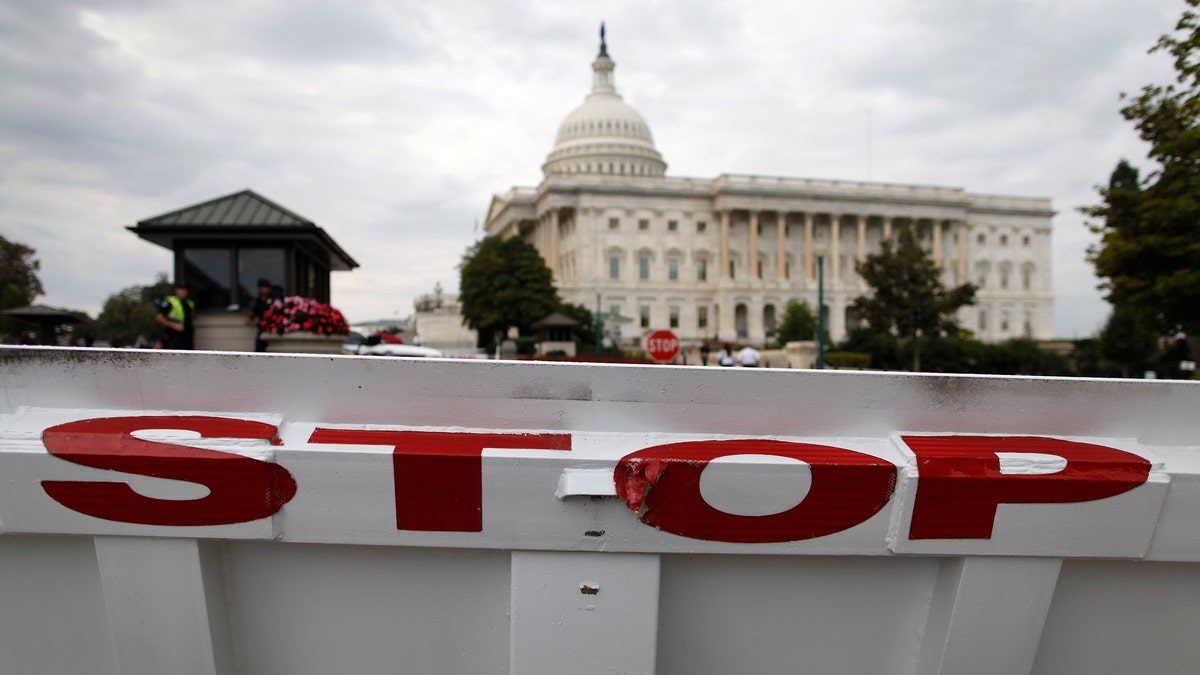
The U.S. government began a partial shutdown for the first time in 17 years, potentially putting up to 1 million workers on unpaid leave, closing national parks and stalling medical research projects. (REUTERS/Jonathan Ernst)
Over two-thirds of the approximately 13,000 people employed by the Centers for Disease Control and Prevention (CDC) will be furloughed as a result of the government's partial suspension of services – a move that officials fear will put the United States at a disadvantage in monitoring outbreaks of the flu and other contagious diseases.
"We're afraid that this will weaken our ability to detect infectious disease outbreaks if they were to occur, and to stay ahead of some of the outbreaks that we're still doing research on," Barbara Reynolds, director of the CDC's Division of Public Affairs, told FoxNews.com.
The government will cease production of its weekly Flu View reports, and state health departments and laboratories will largely be responsible for monitoring flu outbreaks until the partial suspension of services ends, according to Reynolds.
“But what we won't have is a clear national picture of what's happening with influenza during flu season,” Reynolds said.
Furthermore, the CDC will be unable to continue to monitor outbreaks of two emerging deadly diseases: the Middle East Respiratory Syndrome (MERS) and the H7N9 avian influenza in China. However, Reynolds said in the event of an outbreak or other emergency that posed a threat to the lives of Americans, the CDC would be able to initiate a response.
“Under the law, if we are in a situation of lapsed appropriations, activities related to safety and life can be conducted,” Reynolds said. “If we consider a situation to be an emergency for the life and safety of Americans, we would, at that point, be able to call people in to respond to an outbreak. What we are having some difficulty with is the ability to continue to surveil, or to look for, to find potential outbreaks."
The majority of the employees remaining at the CDC during the partial suspension of services are either members of the U.S. Public Health Service Commissioned Corps or those who work on multi-year, funded projects like the World Trade Center Health Program and the Vaccines for Children Program (VFC).
Other government health agencies have also been affected by the partial suspension of services. According to USA.gov: “Research into life-threatening diseases and other areas will stop, and new patients won’t be accepted into clinical trials at the National Institutes of Health.”
Furthermore, the U.S. Food and Drug Administration will be “unable to support the majority of its food safety, nutrition, and cosmetics activities," the department of Health and Human Services said in a statement. This will limit operations like routine inspections, monitoring of imports and laboratory research, according to a report from LiveScience.
Jonathan Serrie contributed to this report.
